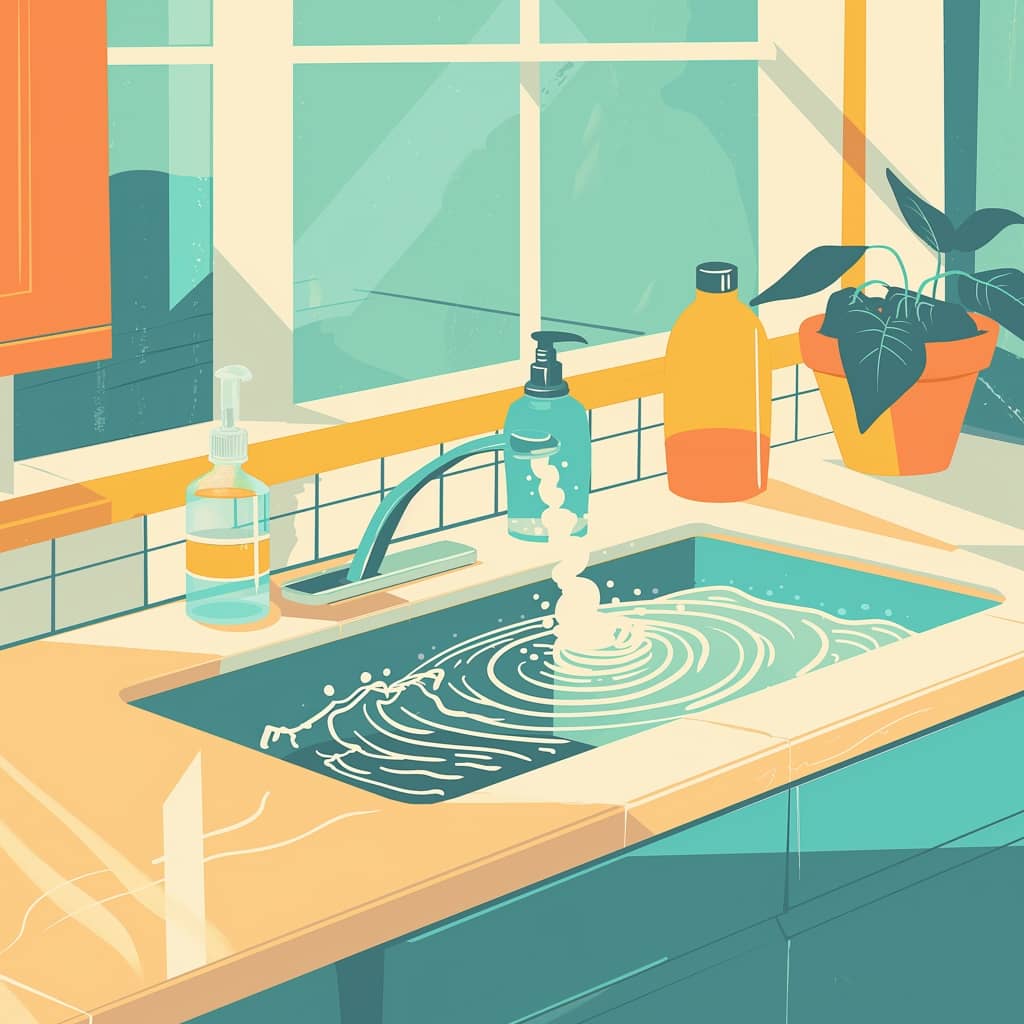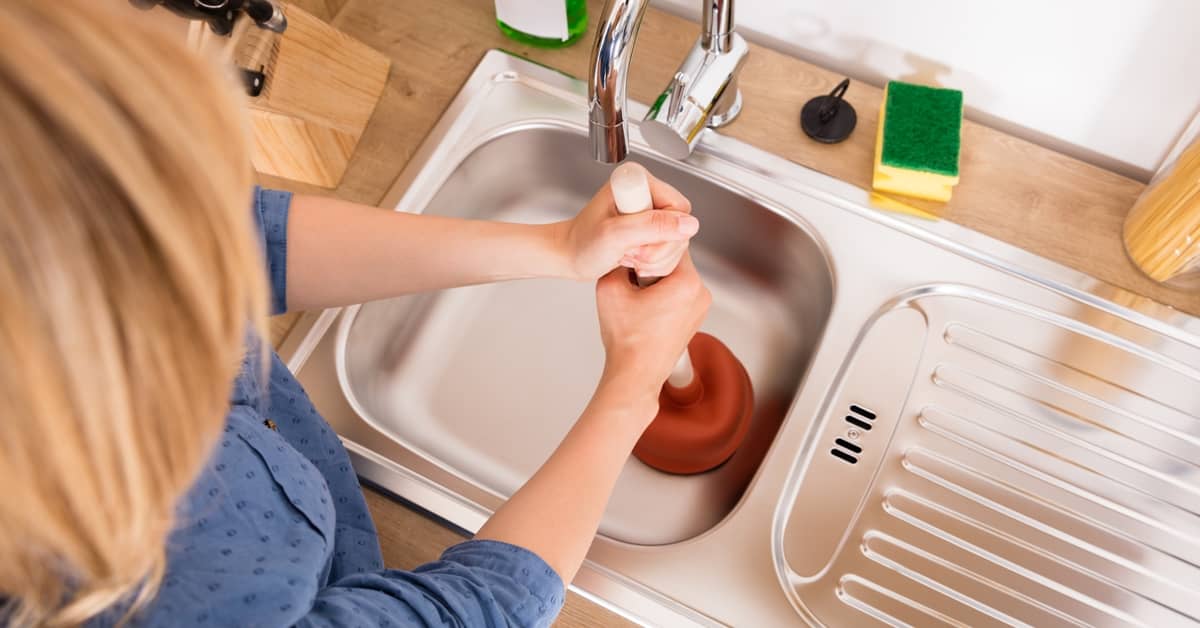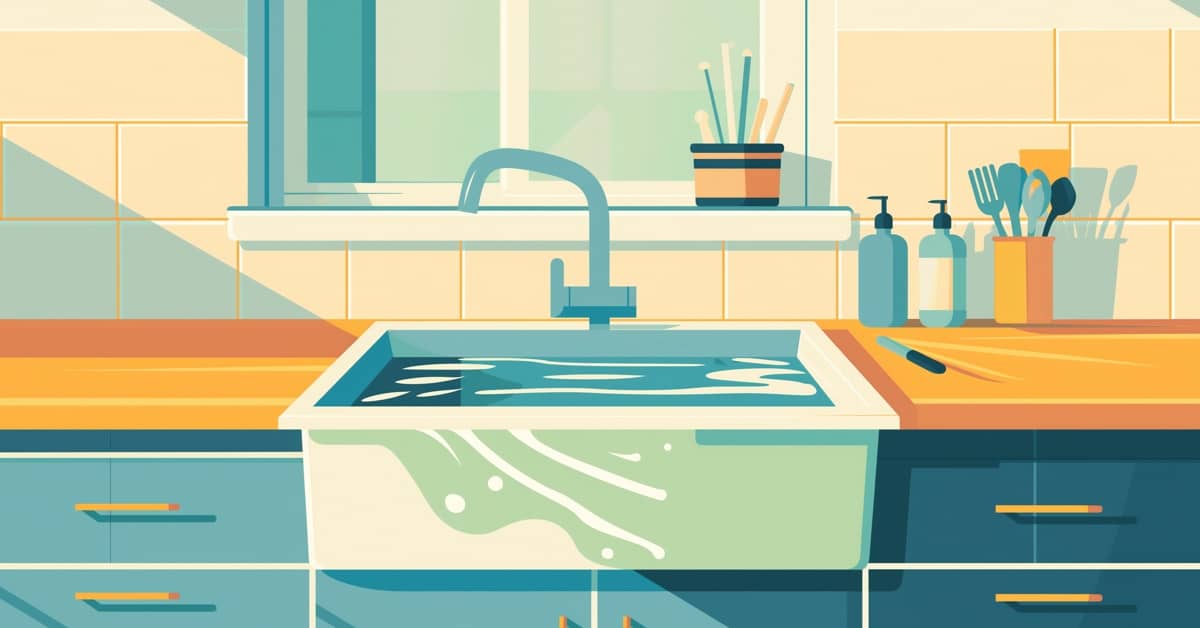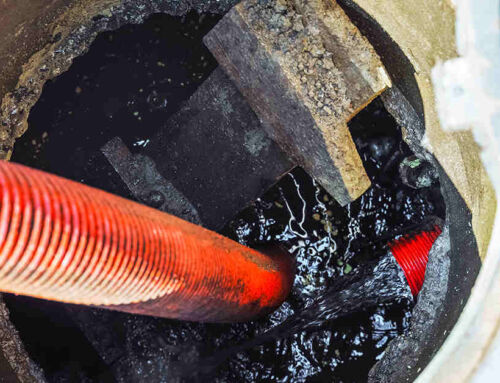Jump to…
Experience the Unblockers Difference
No call-out charges
Emergency response call-outs available
Available anytime 24/7
Expert, local engineers
Fixed price, no hidden charges

Dealing with a blocked sink can range from a minor annoyance to a significant plumbing issue, affecting your daily routine and the functionality of your home. Assessing the severity of the blockage is the first step in determining the most appropriate solution.
Key Points
Assessing the Severity of the Blockage
Minor Blockages
These typically present as slow draining water and might be solved using household tools or over-the-counter sink unblockers. Minor blockages often result from accumulated food particles, soap scum, or minor grease build up.
Moderate Blockages
Signs of a moderate blockage include water pooling and draining very slowly, often accompanied by gurgling sounds. These blockages might require more robust measures, such as a drain snake or a more powerful sink unblocking chemical.
Severe Blockages
If your sink fails to drain at all, or if there’s a backflow of water, you’re likely facing a severe blockage. This could indicate deeper issues within your plumbing system, such as obstructions in the main pipes or structural problems.
Not Sure How Severe the Blockage Is? Get a Free On-Site Quote
Determining the exact cause and severity of a sink blockage can sometimes be challenging. If you’ve tried conventional methods without success, or if you suspect a more serious issue, it’s wise to seek professional advice. At Unblockers.net, we offer free on-site quotes to accurately diagnose and address your sink blockage problems. Our experts come equipped with the necessary tools and expertise to provide efficient and effective solutions, ensuring your sink returns to optimal functionality.
Contact us for a comprehensive evaluation and resolve your sink blockage issues with professional precision and care.
Common Causes of Sink Blockages
Understanding the common causes of sink blockages is essential in both preventing and effectively addressing these plumbing issues. Blockages can arise from a variety of reasons, ranging from everyday activities to less obvious factors. Recognising these causes not only helps in troubleshooting existing problems but also plays a crucial role in preventing future blockages. Below, we’ll explore the diverse reasons behind sink blockages, shedding light on how these issues develop and how best to avoid them.
Food Particles
Food Scraps and Sink Blockages: Food particles, especially when not broken down by a garbage disposal unit, can accumulate in the pipes, leading to blockages. Larger scraps and starchy foods like pasta or rice are particularly problematic as they expand and stick to the pipe walls.
Build-ups of Limescale
Limescale Accumulation: In areas with hard water, limescale can build up in pipes over time. This build up narrows the pipes, restricting flow and making blockages more likely, especially when combined with other waste materials.
Grease and Fat Build-up
Impact of Grease on Pipes: Grease and fat from cooking can solidify inside the sink pipes, creating stubborn blockages. Over time, these substances collect debris and form significant clogs that obstruct water flow.
Soap Scum and Mineral Build-up
Soap and Minerals Clogging Sinks: Soap scum, combined with minerals in hard water, can create a residue that lines pipes and narrows their diameter. This build-up not only restricts water flow but also traps other debris, exacerbating the blockage.
Foreign Objects
Blockages from Non-Food Items: Occasionally, foreign objects like utensils, small toys, or jewellery can fall into the sink and cause blockages, especially if they become lodged in the U-bend.
Pipe Deterioration
Ageing Pipes and Blockages: Over time, pipes can deteriorate, corrode, or become misaligned, leading to frequent blockages. Older plumbing systems are particularly susceptible to such issues.
Hair Accumulation
Hair in Bathroom Sinks: In bathroom sinks, accumulated hair mixed with soap residue can form significant clogs, especially over time as the hair binds together and traps other debris.
Small Objects
Blockages from Accidental Drops: Small objects like bottle caps, cotton swabs, or makeup accessories can accidentally fall into the sink and cause blockages, often requiring removal to clear the drain.
Plumbing System Issues
Wider Plumbing Problems: Sometimes, sink blockages are symptomatic of broader plumbing system issues, such as main sewer line blockages or poorly ventilated drain pipes.

Methods of unblocking kitchen and bathroom sinks
When faced with a blocked sink, there are various methods you can employ to resolve the issue. From simple DIY techniques to professional interventions, the right approach depends on the severity and nature of the blockage. In the upcoming sections, we’ll explore different strategies for unblocking sinks, offering practical solutions for restoring your sink’s functionality.
DIY Methods
Tackling a blocked sink doesn’t always require professional help. There are several DIY methods you can try to unblock your sink effectively and safely. From using household items to specific plumbing tools, these approaches can be quite effective for minor to moderate blockages. Below, we explore various DIY methods for sink unblocking.
Plunger Use
Effectively Using a Plunger: A plunger can be a handy tool for dislodging blockages in your sink. To use it effectively, cover the overflow hole with a damp cloth, create a firm seal around the plughole with the plunger, and use strong, consistent thrusts to dislodge the blockage.
Vinegar and Baking Soda
Natural Cleaning Method: Mix equal parts of baking soda and vinegar and pour the solution down the blocked sink. The reaction helps to break down fatty acids into soap and glycerin, allowing the clog to wash down the drain. After waiting for about an hour, rinse with hot water.
Boiling Water
Using Boiling Water for Blockages: Boiling water can be effective in dissolving grease and soap build-up. Pour a kettle of boiling water down the drain slowly in stages, allowing the hot water to work between each pour.
P-trap Inspection and Cleaning
Cleaning the P-trap: The P-trap is the curved pipe under the sink. Place a bucket underneath, unscrew the P-trap, and clear out any debris. Ensure you reattach it tightly to prevent leaks.
Plumber’s Snake
Dealing with Deeper Clogs: A plumber’s snake, or drain snake, can be used for more stubborn blockages. Feed the snake into the drain until you feel resistance, then twist and push to break up the clog.
Chemical Drain Cleaners
Using Chemical Cleaners Safely: Chemical drain cleaners can be effective but should be used with caution. Always follow the manufacturer’s instructions and avoid overuse, as they can damage pipes and harm the environment.
Enzymatic Drain Cleaners
Eco-Friendly Enzymatic Cleaners: Enzymatic cleaners use natural enzymes to break down organic material in the blockage. They are safer for pipes and the environment but may take longer to work than chemical cleaners.
Professional Sink Cleaning Services
Sometimes, a blocked sink requires professional attention. Whether it’s due to a severe blockage, recurrent problems, or complex plumbing issues, professional sink cleaning services offer expertise and advanced tools to effectively resolve the issue. These services can provide a thorough cleaning and also help identify and rectify any underlying problems in your plumbing system.
Professional Sink Unblocking Services
When DIY methods fall short of the blockage being too complex, professional sink unblocking services become an indispensable resource. These services not only provide immediate relief from stubborn blockages but also ensure that the job is done safely and effectively. Professional plumbers have the tools and expertise to handle a variety of sink blockage issues, from simple clogs to more intricate plumbing problems. Below, we explore different types of professional services available for sink unblocking.
Emergency Sink Unblocking Services
Rapid Response for Urgent Blockages: Emergency sink unblocking services are crucial for situations that require immediate attention, such as severe blockages causing overflow or potential water damage. These services typically offer round-the-clock availability to address urgent plumbing issues swiftly and efficiently.
Local Plumbing Services
Specialised in Blockage Removal: Drain cleaning companies focus specifically on clearing blockages in various types of plumbing systems. They are equipped with advanced tools and techniques, such as motorised augers, to efficiently resolve even the most stubborn clogs.
Professional Plumbing Solutions
Advantages of Professional Plumbers: Hiring professional plumbers for sink unblocking brings numerous benefits. They are equipped with specialised tools and have extensive knowledge to diagnose and solve complex blockages effectively. Professional solutions also often come with warranties and assurances of quality work.
Sink and Drain Cleaning Companies
Specialised Services for Sinks and Drains: Sink and drain cleaning companies offer specialised services focused on plumbing issues. They use advanced techniques and equipment, like motorised drain snakes and camera inspections, to accurately identify and address blockages.
High-Pressure Water Jetting
Efficient Cleaning with Water Jetting: High-pressure water jetting is a powerful method used by professionals to clear blockages and clean pipes thoroughly. This technique uses high-velocity water streams to cut through and remove blockages, including grease, scale, and other debris, ensuring a comprehensive clean.
Advanced Jetting Techniques for Tough Blockages
High-Efficiency Solutions for Stubborn Clogs: Advanced jetting techniques are highly effective for tackling tough blockages that standard methods can’t handle. These techniques involve using high-pressure water jets, which can break through and dislodge even the most stubborn clogs, including built-up grease, scale, and tree roots. The versatility and power of water jetting make it a preferred choice for complex plumbing issues.

Preventing Future Sink Blockages
Keeping your sink unblocked is not just about fixing current issues; it’s also about taking proactive steps to prevent future blockages. Regular maintenance and adopting best practices can significantly reduce the likelihood of sink clogs. This section provides tips and advice for maintaining clear sinks, with specific focus on both kitchen and bathroom sinks.
Regular Sink Maintenance
Consistent Care for Clear Drains: Regular maintenance, such as routinely removing debris from drain stoppers and occasional flushing with hot water, can keep your sink clear. Regular checks can help catch and resolve minor issues before they escalate.
Best Practices to Avoid Sink Clogs
Habits to Keep Your Sink Clear: Simple habits can go a long way in preventing sink blockages. This includes being mindful of what goes down the drain, avoiding disposing of oil, grease, and large food particles in the sink, and using sink strainers.
Kitchen Sink Care
Kitchen Sink Specific Tips: Kitchen sinks require special attention due to exposure to food waste and grease. Regularly cleaning the sink, using garbage disposals wisely, and avoiding pouring grease down the drain can prevent blockages.
Bathroom Sink Maintenance
Keeping Bathroom Sinks Clear: In bathroom sinks, prevent blockages by regularly cleaning hair and soap scum from the drain, and avoiding flushing heavy or non-dissolvable items.
Legal and Environmental Considerations for Sink Unblocking
When dealing with sink blockages, it’s important to consider not only the effectiveness of the methods used but also their legal and environmental implications. Compliance with regulations, adopting eco-friendly practices, and understanding the impact of your actions on the environment are crucial for responsible sink and drain maintenance. This section provides an overview of the legal and environmental aspects related to sink unblocking, offering guidance on how to navigate these important considerations.
Regulations for Sink Cleaning
Navigating Laws and Regulations: It’s essential to be aware of and comply with local and national regulations regarding sink and drain cleaning. These regulations can include specific guidelines on the use of chemicals, disposal methods, and plumbing standards to ensure safety and environmental protection.
Eco-friendly Sink Maintenance
Environmentally Responsible Practices: Employing eco-friendly maintenance practices for your sink involves using methods and products that minimise environmental impact. This includes opting for natural cleaners, avoiding harsh chemicals, and implementing regular maintenance to prevent severe blockages.
Legal Disposal of Sink Waste
Proper Disposal Practices: The disposal of waste extracted from sinks, especially when dealing with hazardous materials or significant amounts of debris, must be done in accordance with legal guidelines. Proper disposal ensures environmental safety and compliance with waste management laws.
Environmental Impact of Sink Cleaners
Evaluating Cleaner Choices: Various sink cleaners have differing environmental impacts. It’s important to understand the effects of chemical cleaners, which can contain substances harmful to waterways and aquatic life, and to consider using biodegradable and less harmful alternatives.
Community Guidelines for Sink Care
Following Local Standards: Many communities have specific guidelines or best practices for sink and drain care to prevent broader issues like water contamination or sewer blockages. Adhering to these guidelines not only helps maintain the local infrastructure but also supports environmental conservation efforts.
Summary
The guide provides an in-depth look at how to tackle, diagnose, and prevent sink blockages, starting with the crucial step of assessing the blockage’s severity, which can range from minor to severe, and suggesting suitable solutions that include both DIY approaches and seeking professional help. It delves into the common culprits behind blockages, such as accumulated food particles, grease, soap scum, and foreign objects, and explains how these issues can affect your plumbing. We explore various methods to unblock sinks, highlighting simple home remedies like using plungers and natural cleaners, as well as more advanced techniques like high-pressure water jetting. The importance of regular maintenance and adopting best practices to prevent future issues is underscored, with tips on avoiding harmful materials down the drain and using strainers effectively. Additionally, the guide addresses the legal and environmental considerations of sink maintenance, advocating for compliance with regulations, eco-friendly practices, and the responsible disposal of waste to minimise environmental impact and ensure community well-being. Through this comprehensive approach, the guide aims to equip you with the knowledge and tools needed for efficient and sustainable sink care.
Related Articles
READY TO MAKE YOUR ENQUIRY?
Get a quote for a drainage callout
Get a quote for a drainage callout
We have drainage engineers in your area now offering availability today.
Just leave a few details and our friendly drainage service team will call you right back.
We have drainage engineers in your area now offering availability today.
Just leave a few details and our friendly drainage service team will call you right back.
"*" indicates required fields

Need to speak to us right away? We have local engineers available now. Call 0808 303 0050
“Outstanding Service & Fast Repair”




